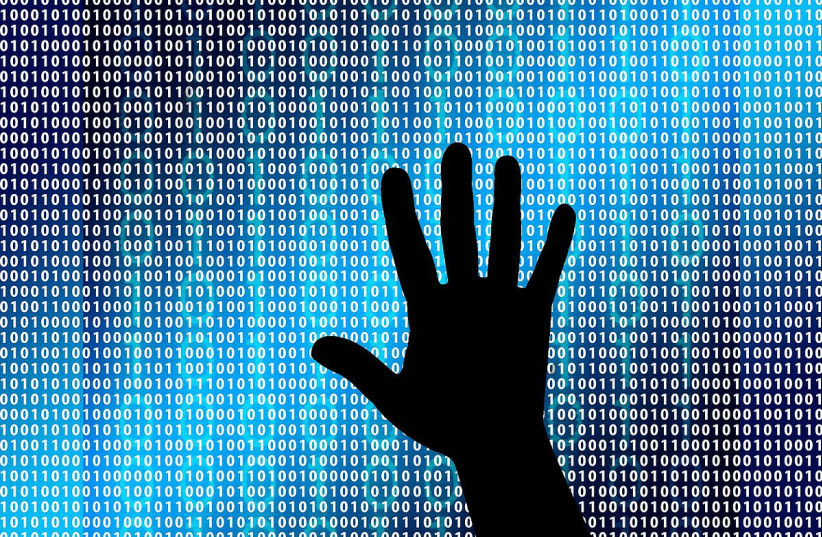SETH J. FRANTZMAN

Iran had admitted that it has been under cyber attack recently, laying the blame at the feet of the US and the “Zionist regime.” Iran may also be looking to Russia and other countries to improve its cyber capabilities. An article at Tasnim News noted that Iran believes Russia is one of the countries that have taken the “correct” path in understanding the need for “cyber sovereignty.”
What is Iran’s interest in learning from Moscow? It believes that Russia made the right choice in trying to move to cyber independence away from what Iran calls US “cyber hegemony.”
It points to a December 2012 World Conference on International Telecommunications that took place in Dubai. Russia joined China and India at the time in proposing that “international resources be under global scrutiny and that the United States hand over Internet control to the United Nations.”
Iran praises Russia’s correct stance.
Russia is one of the countries that have a correct understanding of cyber sovereignty and a full sense of crisis against the cyber hegemony of the US. In early December 2012 at a conference of the International Telecommunication Union in Dubai, Russia joined China, India and other countries in proposing that international resources be under global scrutiny and that the US hand over Internet control to the UN.
 Illustrative photo of a cyberattack. (credit: Wikimedia Commons)
Illustrative photo of a cyberattack. (credit: Wikimedia Commons)Iran has been looking to cyberspace as both a threat and an opportunity in recent years. It has called for the need to establish a single command to counter cyberattacks.
“Russia believes that the information space is being used to achieve political-military goals,” Tasnim says. “An example of Russia’s efforts to secure and centralize control of its online information space and consolidate its national cyber sovereignty is the launch of Russia’s independent Internet.”
Iran says “the network allows Russia to use an intranet and a limited regional network, such as the Internet used by large or military companies, throughout the country.”
Russia is also pushing “cyber diplomacy” at the UN. “This diplomacy pursues two main motives, the first of which does not go directly to cyberspace. In the first place, Moscow expects Russia’s diplomatic efforts as a leading player in cyberspace to increase its prestige and respect not only in the region but also potentially globally; Moscow’s second motive for pursuing cyber diplomacy has been to target cyberspace directly, seeking to create the conditions for the global promotion of Russia’s initiative to draft and ratify the UN Convention on International Information Security.”
THIS IS important because Iran says that Russia has “announced the deployment of Russian intelligence warfare forces.” Iran also notes that Russia is threatening the West and Iran might like to join this threat. “Russia is one of the most dangerous countries in the field of cyber attacks and has been repeatedly accused of cyber attacks by officials of European governments, the United States and other Asian countries.
Westerners believe that the use of non-state hackers is a common practice by Russia, which allows it to prevent the official attribution of cyber activities to hackers. Because assignment is a condition for retaliation, the use of non-state-owned hackers enables Russia to curb the gray space of operations that complicates the pursuit of a response to the attacks.”
Why this matters is because Iran’s media has highlighted the recent attack that Iran suffered. “Disruption of the country’s internal fuel distribution system has highlighted the importance of strengthening passive defense against cyber attacks and protecting the country’s data transmission infrastructure. At the next meeting, the National Security Commission will follow up on possible shortcomings, cyber protection and information security in the country in the presence of officials,” Iran’s Tasnim says. Iran’s politicians are now questioning the oil ministry and other officials regarding the need for better cyber security.
“Cyberwarfare is one of the manifestations of hostile actions in cyberspace. So today we see six types of cyber warfare, one of which is cyber warfare against infrastructure. Stuxnet’s attack on Iran’s nuclear infrastructure may be considered one of the first types of cyber warfare against infrastructure in the world,” Fars News reports.
Stuxnet was a computer worm discovered in 2010 that was thought to have wreaked havoc on Iran’s nuclear program.
Iran has now said that “the reality is that the cyber-infrastructure war has started in the world and we must consider this war real and adapt to it.” Iran’s head of Iran’s Civil Defense Organization Brig.-Gen. Gholam Reza Jalali has said that the recent “attack is similar to a cyber attack on the railway and Shahid Rajaee port, and in our opinion, this attack was definitely carried out by the Americans and Zionists.”
That incident took place in May 2020 and led to a temporary halt in port operations. “According to intelligence analysis, this attack was carried out by a foreign country and the Americans and the Zionists, but we are investigating in terms of technical information and we cannot say for sure about the origin of the attack. Of course, part of the investigation has been concluded,” said Jalili.
He compared the cyber conflict to a sports game and said that while one goal had been scored, the game was not over.
No comments:
Post a Comment